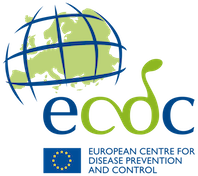This is a five-day dry-lab course giving a general practical introduction to NGS data analysis with examples of SARS-CoV-2.
Dates and duration: 13-17 May 2024.
Location: Robert-Koch-Institut, Berlin, Germany.
Audience:
This course is designed for participants with no or little experience in analysing NGS data. Previous knowledge of Linux and bioinformatics is not required. Participants should have fundamental understanding of molecular biology and basic knowledge in NGS theory and background. The training is considered beginner level.
Workstations (laptops) will be provided during the training. The participants should be or will be involved in the microbiological surveillance of SARS-CoV-2 and be able to actively apply skills acquired as part of the training. Participants should be part of the European Reference Laboratory Network for Human Influenza (ERLI-Net) and/or European COVID-19 reference laboratory network (ECOVID-LabNet) or a national public health institute or associated institute in countries of the EU/EEA, the Western Balkan (Albania, Kosovo, Montenegro, Serbia, North Macedonia, Bosnia and Herzegovina) or Türkiye.
Objectives: After completing this training, the participants should be able to:
- Explain the theoretical background behind SARS-CoV-2 next-generation sequencing (NGS).
- Execute bioinformatic analyses including:
- consensus sequence generation
- genotypic assignment of Pangolin/Nextclade lineages
- genotypic assessment of antiviral resistance
- Operate the reporting of results to ECDC TESSy databases and submitting data to public databases such as GISAID (Global Initiative on Sharing All Influenza Data) or the COVID-19 data portal.
Participation: This training is not open for self-enrolment. Participation is through invitation only.
